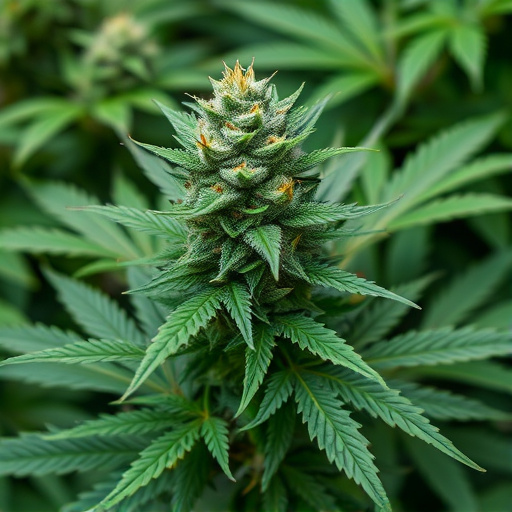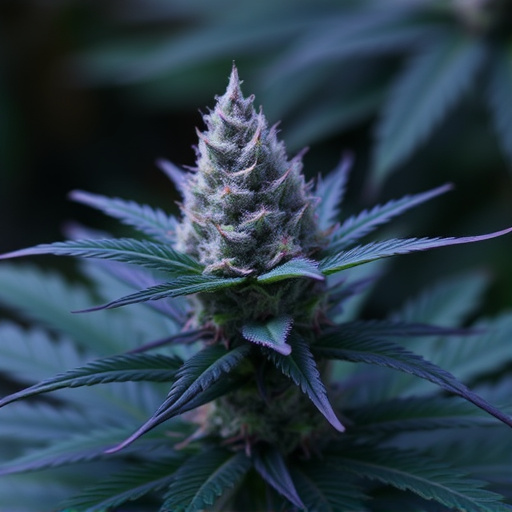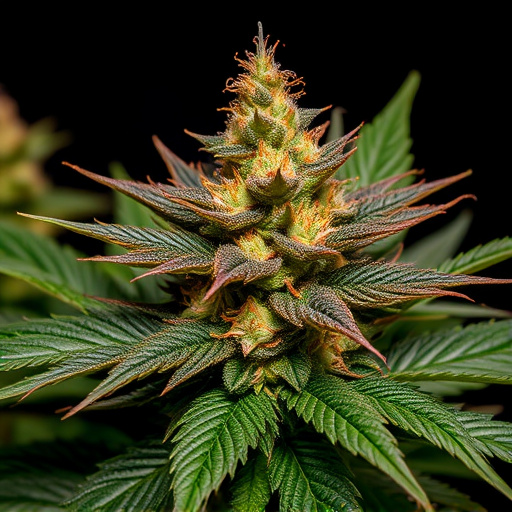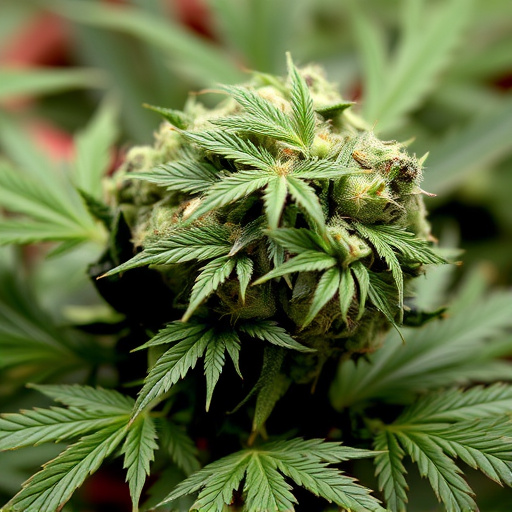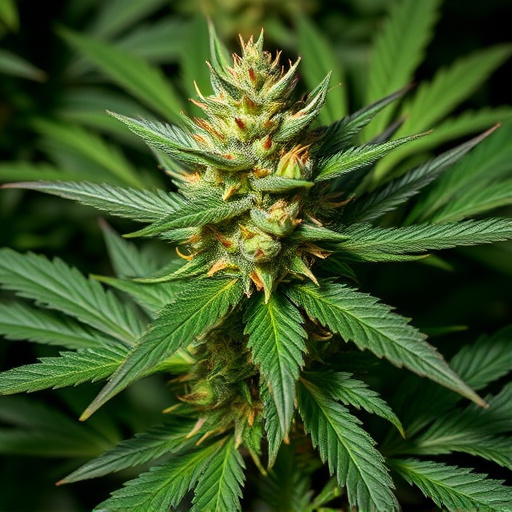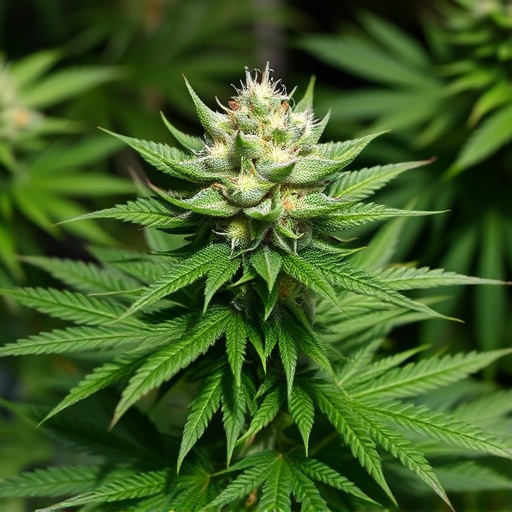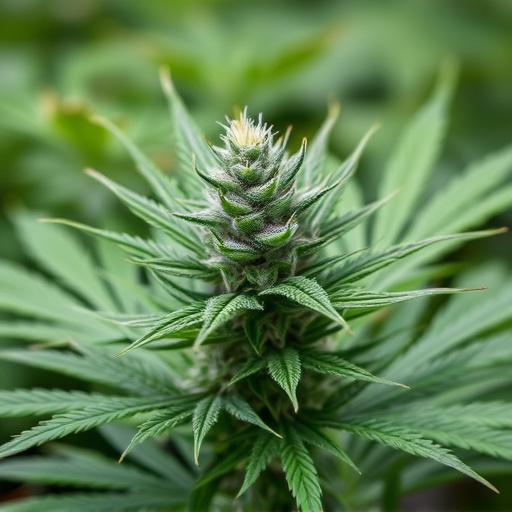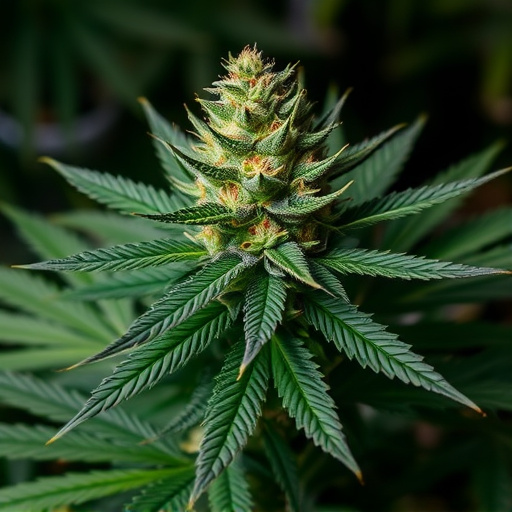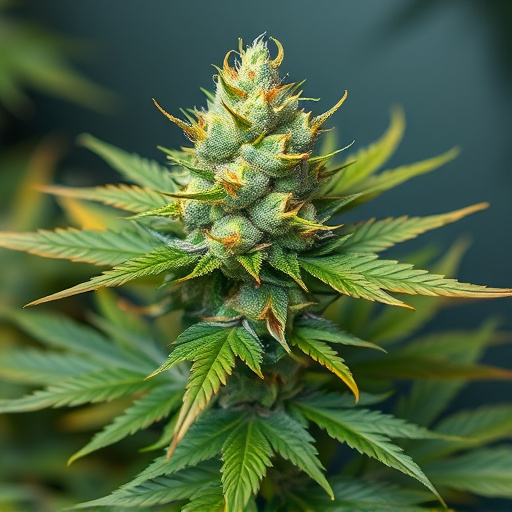Cannabis sativa strains' diverse chemical compositions offer varied experiences, with THC inducing euphoria and CBD providing potential therapeutic benefits. Diet plays a significant role in potency, as fat-soluble vitamins and certain herbs enhance THC effects and influence the endocannabinoid system. Scientific research highlights how nutrition impacts cannabinoid production in cannabis plants, affecting strain quality. Growers optimize strains through balanced diets and feeding schedules, resulting in stronger, more desirable cannabis sativa strains.
“Wondering if your diet can amplify the effects of weed? It’s a question that sparks curiosity among cannabis enthusiasts. This article explores the fascinating connection between nutrition and the potency of cannabis sativa strains. From understanding the unique compounds within these plants to uncovering scientific findings on how food can enhance their effects, we delve into the science behind this intriguing topic. Discover the potential role of your diet in intensifying or modifying your cannabis experience.”
- Understanding Cannabis Sativa Strains and Their Compounds
- The Role of Diet in Enhancing Cannabis Effects
- Scientific Insights on the Impact of Nutrition on Weed Strength
Understanding Cannabis Sativa Strains and Their Compounds
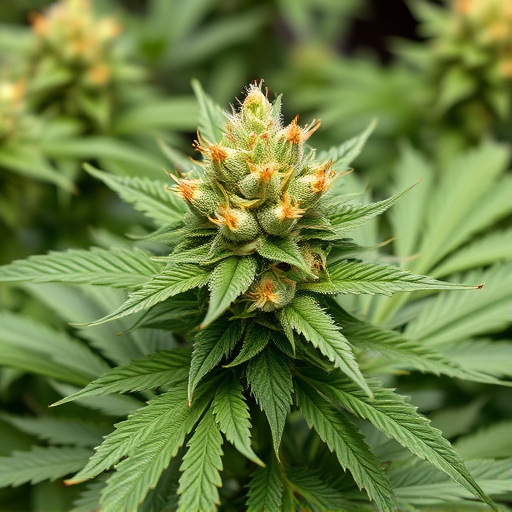
Cannabis sativa strains are a popular subject in the world of marijuana consumption, primarily due to their diverse compositions and effects. These plants contain various chemical compounds, with two key ones being THC (tetrahydrocannabinol) and CBD (cannabidiol). Each strain boasts unique levels of these compounds, which significantly impact the user’s experience. For instance, high-THC strains are known for their potent psychotropic effects, inducing feelings of euphoria and relaxation, while CBD-rich varieties offer potential therapeutic benefits without the mental alterations associated with THC.
Understanding the specific traits of different cannabis sativa strains is crucial when exploring their potential to enhance or alter the potency of marijuana. Certain strains may naturally contain higher concentrations of these compounds, making them more potent. Additionally, the cultivation and processing methods can significantly affect the final product’s strength. Therefore, knowledge about cannabis sativa strains equips consumers with valuable insights, enabling them to make informed choices based on their desired effects and health considerations.
The Role of Diet in Enhancing Cannabis Effects
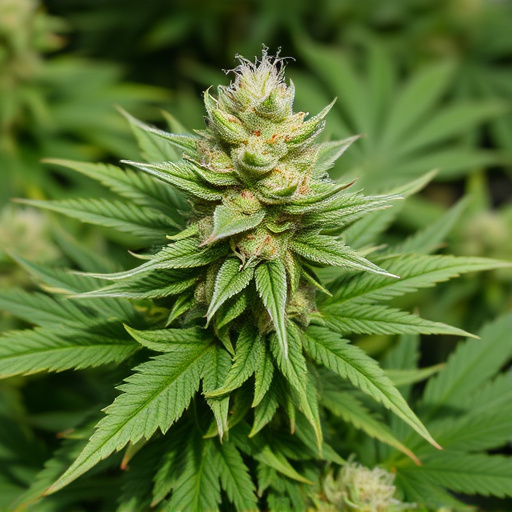
The role of diet in enhancing cannabis effects is a fascinating aspect often overlooked in discussions about marijuana use. While the primary active compounds in cannabis, THC and CBD, are well-known, research suggests that what we eat can significantly impact how our bodies process and respond to these compounds. Certain foods and nutrients play a crucial role in modulating the effects of cannabis, especially when it comes to cannabis sativa strains.
For instance, fat-soluble vitamins like vitamin E and K, found in many nutritious foods such as nuts, seeds, and leafy greens, can enhance the bioavailability of THC. This means that consuming these vitamins alongside cannabis might intensify its psychological effects. Additionally, certain herbs and spices contain compounds that interact with the endocannabinoid system, potentially amplifying or modifying the high from marijuana. Understanding these dietary influences could help users optimize their cannabis experience while also underscoring the importance of a balanced diet in overall health and well-being.
Scientific Insights on the Impact of Nutrition on Weed Strength
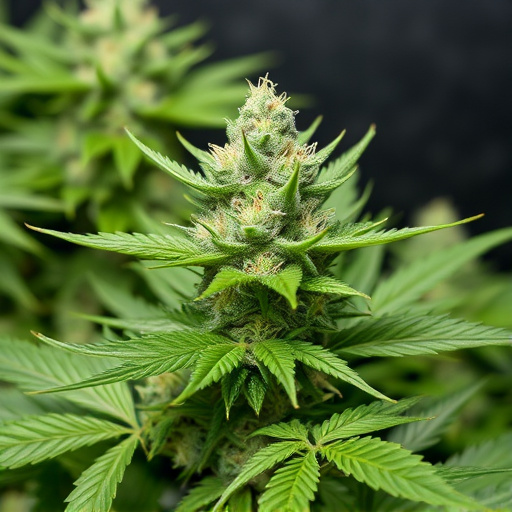
Scientific research has shed light on the intriguing connection between nutrition and the potency of cannabis sativa strains. Studies indicate that the nutritional content of one’s diet can indeed influence the strength and effects of weed. Nutrients like omega-3 fatty acids, vitamins A, C, and E, and minerals such as magnesium and zinc have been linked to enhanced cannabinoid production in plants. These essential elements play a crucial role in the overall health and vitality of cannabis plants, allowing them to produce more potent compounds.
Additionally, the timing and type of nutrition matter. For instance, providing cannabis plants with a balanced diet during specific growth stages can lead to more robust and aromatic strains. Growers often experiment with different feeding schedules and nutrient solutions to optimize cannabinoid profiles, resulting in stronger and more desirable cannabis sativa strains.
While the influence of diet on cannabis experience is an intriguing topic, it’s essential to remember that the strength of weed primarily depends on the specific cannabis sativa strain and its unique compound profile. While certain foods may potentially enhance certain cannabinoids’ effects, they cannot alter the inherent potency of a particular strain. Scientific research suggests that individual metabolism and tolerance also play significant roles in how we perceive cannabis’ impact. Thus, while diet can contribute to a more enjoyable experience, it’s the cannabis sativa strain itself that remains the key determinant of its potency.
